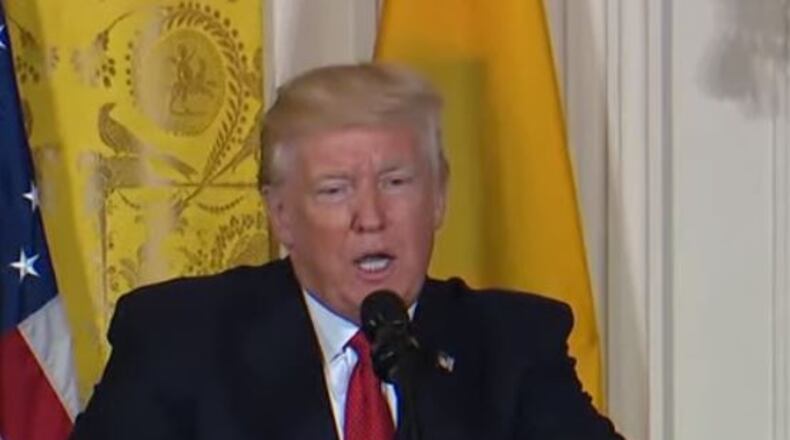In another legal setback for President Donald Trump, the Fourth Circuit Court of Appeals refused on Thursday to lift an injunction against his revised travel and refugee order, preventing the White House from suspending new visas for people from six Muslim-majority countries, as this decision took another step on the way to a likely showdown on the matter at the U.S. Supreme Court.
As in earlier rulings, the judges cited the President's own words calling for a "Muslim ban," ruling that the order was basically an effort to target "Muslims for exclusion from the United States."
"These statements, taken together, provide direct specific evidence" of what spurred the executive orders, the court's majority wrote in a 202 page decision.
"President Trump's desire to exclude Muslims from the United States," the opinion read.
In a separate concurring opinion, Chief Judge Roger Gregory said the Trump order "drips with religious intolerance, animus, and discrimination."
Not only did the ruling quote Mr. Trump, but also some of his top aides and advisers, like White House Press Secretary Sean Spicer, former New York City mayor Rudy Giuliani, and others.
The judges rejected an argument by the Trump Administration that the order was done in the name of national security, saying the record shows Mr. Trump belatedly consulted agencies that deal with that matter, and only after his first travel order had been derailed in the courts.
The President's order would impact people coming into the United States from Iran, Libya, Somalia, Sudan, Syria and Yemen - Iraq had been on the original order, but was taken off when that first plan was revised.
The ruling was the first of two from federal appellate courts - the Ninth Circuit also must pass judgment on the plan.
"The Muslim ban continues to be 100% blocked from going into effect nationwide, by an overwhelming vote," said lawyer Neal Katyal, who argued this same issue before the Ninth Circuit for the state of Hawaii.
Several hours after the Fourth Circuit ruling, the Justice Department made clear that the Trump Administration would take this case to the U.S. Supreme Court.
Credit: Jamie Dupree
Credit: Jamie Dupree
"President Trump’s executive order is well within his lawful authority to keep the Nation safe," said Attorney General Jeff Sessions in a written statement.
"This Department of Justice will continue to vigorously defend the power and duty of the Executive Branch to protect the people of this country from danger, and will seek review of this case in the United States Supreme Court," Sessions added.
If the Justices decide to take this case, it would most likely be heard in their new term, which begins in October.
The government has 90 days in which to make an appeal; no ruling has yet been made on a similar matter by the Ninth Circuit.
About the Author
The Latest
Featured




